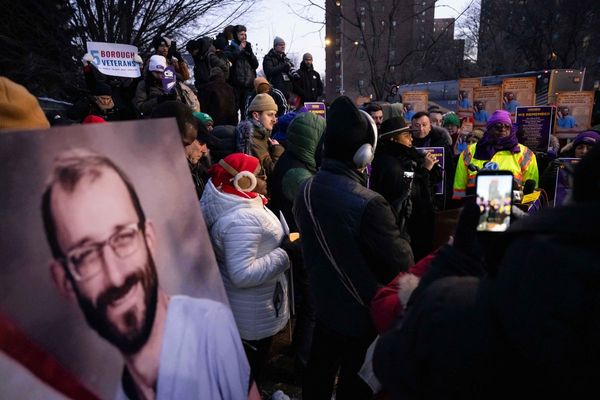
A key Russian-held bridge into the occupied southern city of Kherson has been hit with a barrage of rocket fire by Ukrainian forces, who appeared to be stepping up operations to isolate the city. Video and witness accounts showed up to 18 detonations on the Antonivskiy Bridge over the Dnieper river, one of the main Russian resupply routes into Kherson, with Russian anti-missile air defences apparently failing to intercept the strikes. There were also reports that a railway bridge was targeted.
Self-appointed authorities in the occupied Kherson region have closed the bridge to traffic, but said it was structurally sound and that repairs would begin shortly. Kirill Stremousov, deputy head of the Russian-imposed administration, said “There are hits on the bridge, the bridge has not been destroyed. More holes have been added”. He claimed that the attack would make life slightly more difficult for the resident of Kherson, but “it will not affect the outcome of hostilities in any way.”
One person has been killed and four wounded in a Russian attack on a hotel in Bakhmut in the Donetsk region, according to local emergency services and the regional governor.
The self-proclaimed republic in Donetsk has said that two civilians were injured in territory it occupies by shelling from Ukrainian forces overnight.
The UK’s Ministry of Defence has said “Russian private military company Wagner has likely succeeded in making tactical advances in the Donbas around the Vuhlehirska power plant and the nearby village of Novoluhanske. Some Ukrainian forces have likely withdrawn from the area.”
Russian forces continued to strike civilian infrastructure in Kharkiv, Ukraine’s second-largest city, and the surrounding region in the country’s northeast. Regional governor, Oleh Syniehubov, said the strikes on the city resumed around dawn Tuesday. “The Russians deliberately target civilian infrastructure objects hospitals, schools, movie theatres. Everything is being fired at, even queues for humanitarian aid,” Syniehubov told Ukrainian television.
Russia has lost almost 40,000 soldiers since launching its latest invasion of Ukraine on 24 February, President Volodymyr Zelenskiy has claimed in his nightly address. The number of casualties has not been verified.
Ukraine’s parliament has approved Zelenskiy’s nomination of Andriy Kostin to be the country’s next prosecutor general. He replaces Iryna Venediktova, who was removed as prosecutor general earlier this month. Kostin is a member of Zelenskiy’s Servant of the People party.
The headquarters overseeing exports of Ukrainian grain has been unveiled in Istanbul today, and a senior Turkish official said the first ship is likely to depart Black Sea ports in a few days. The joint coordination centre (JCC) in Istanbul will oversee departures from three Ukrainian ports in which ships must circumvent mines, and will conduct inspections of incoming ships for weapons. All vessels pass through Turkish waters.
Ukraine’s navy confirmed on Wednesday that work had started at three Ukrainian Black Sea ports aimed at preparing for the resumption of grain exports. “In connection with the signing of the agreement on the unblocking of Ukrainian ports for the export of grain, work has been resumed in the ports of Odesa, Chornomorsk and Pivdeny,” the navy said on Facebook.
The Russian deputy foreign minister, Andrei Rudenko, has said a Turkish-brokered deal to unblock Ukrainian grain exports on the Black Sea could collapse if obstacles to Russia’s agricultural exports are not promptly removed.
Insurance uncertainty poses the biggest obstacle to grain ships leaving Ukraine’s Black Sea ports this week, exporters say. Questions remain over whether insurance companies will be willing to insure the vessels as they navigate the mined waters, while buyers are hesitant to make new orders given the risk of Russian attacks.
The first train with sanctioned goods has arrived from Russia to Kaliningrad via Lithuania in the first such trip since the European Union said Lithuania must allow Russian goods across its territory, according to the regional governor. The train reportedly consisted of 60 freight cars with cement.
Russia’s defence ministry plans to hold strategic military exercises in the east of the country from 30 August to 5 September. Interfax reported that the militaries of unspecified other countries will be taking part in the regular ‘Vostok’ exercises, citing the defence ministry.
Turkish president Recep Tayyip Erdoğan will hold a one-day visit to the Russian resort of Sochi on 5 August, his office announced. It is anticipated that he will meet with his Russian counterpart Vladimir Putin.
Gazprom’s deputy CEO, Vitaly Markelov, has said the company has still not received a Siemens turbine used at Nord Stream 1’s Portovaya compressor station that has been undergoing servicing in Canada. Markelov blamed Siemens, which is servicing the turbine, for the delay, saying that there were sanctions risks associated with the machinery.
The EU has been forced to water down its plan to ration gas this winter in an attempt to avoid an energy crisis generated by further Russian cuts to supply. Energy ministers from the 27 member states, except Hungary, backed a voluntary 15% reduction in gas usage over the winter. Ministers agreed opt-outs for island nations and possible exclusions for countries little connected to the European gas network.
Ukraine aims to strike a deal for a $15-$20bn programme with the International Monetary Fund before year-end to help shore up its war-torn economy, the country’s central bank governor, Kyrylo Shevchenko, told Reuters.
The Russian economy appears to be doing better than expected despite western sanctions. On Tuesday, the International Monetary Fund upgraded Russia’s Gross Domestic Product (GDP) estimate for this year by 2.5%, although its economy is still expected to contract by 6%. “That’s still a fairly sizeable recession in Russia in 2022,” IMF chief economist Pierre-Olivier Gourinchas told AFP, adding that rising energy prices are “providing an enormous amount of revenues to the Russian economy”.







